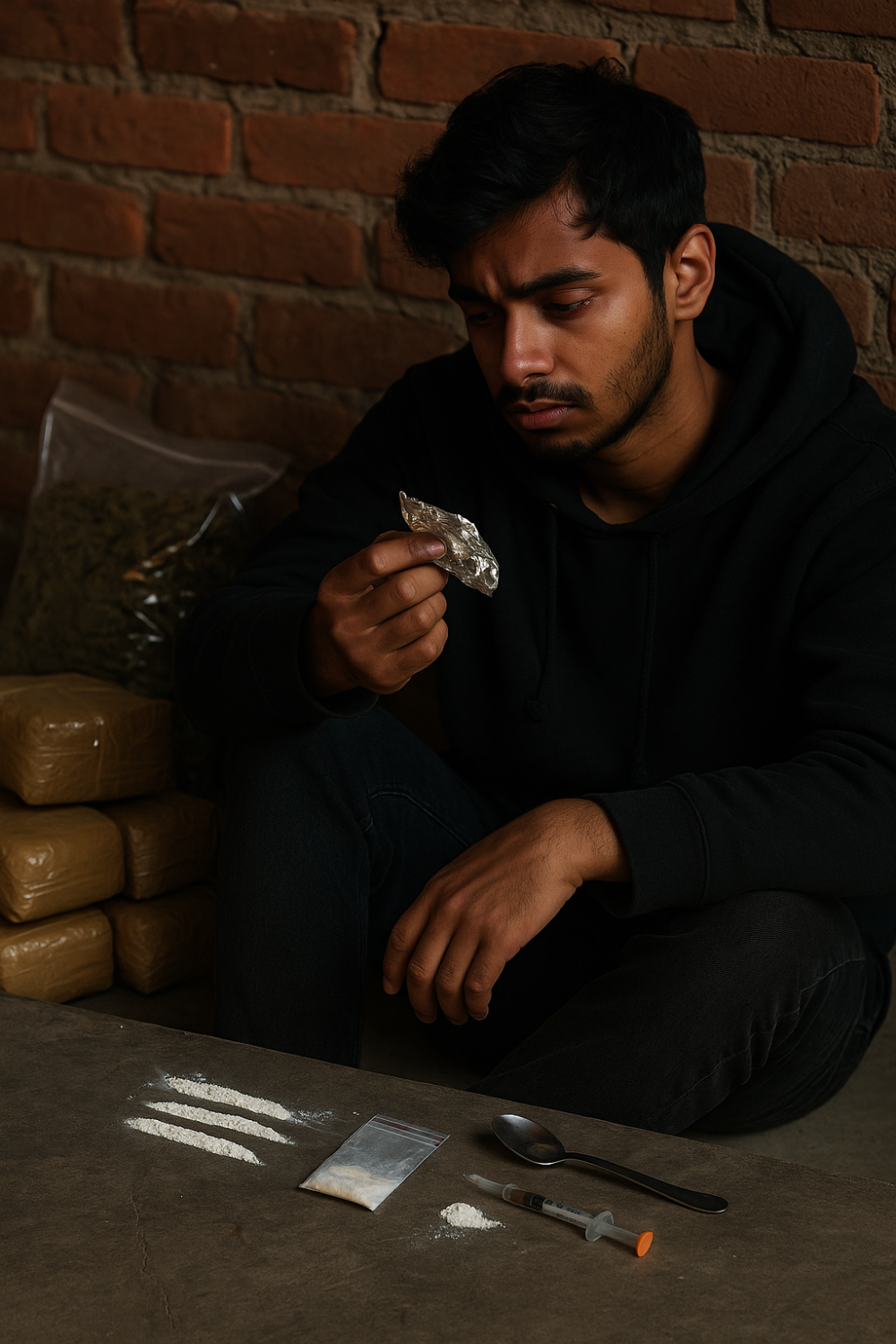
India is staring at a grave internal crisis — the rapidly expanding narcotics menace, now allegedly fueled by hostile foreign intelligence operations. With nearly 7% of the Indian population — around 100 million people — caught in the grip of illegal drug use, the threat has evolved into a silent epidemic undermining the nation’s future.
Intelligence agencies have pointed to a coordinated narcotics strategy involving Pakistan’s ISI and Chinese operatives, aiming to destabilize India by ensnaring its youth in addiction. This cross-border drug pipeline reportedly stretches across India’s heartland — from Delhi to Uttar Pradesh and Madhya Pradesh — with new syndicates emerging at an alarming rate.
In a significant counteroffensive, the Narcotics Control Bureau (NCB), Mumbai, achieved a major breakthrough by arresting the alleged kingpin of a global drug syndicate, Naveen Chichkar, in Malaysia. Chichkar had been evading Indian authorities since 2021 and was subject to an Interpol Red Corner Notice.
His arrest comes as part of a broader crackdown launched after a drug-laced parcel was intercepted earlier this year.
On January 21, 2025, authorities intercepted a suspicious parcel destined for Australia via DHL courier. Hidden inside a multimedia projector were 200 grams of high-grade cocaine. The bust triggered a deeper investigation that led to a massive seizure in Navi Mumbai, where officials recovered:
11.540 kilograms of cocaine
4.9 kilograms of cannabis
5.5 kilograms of cannabis gummies
The investigation uncovered a sprawling international syndicate trafficking cocaine from India to countries including the United States. It operated via air cargo routes, with the involvement of clearing house agents, hawala operators, and logistical networks inside India.
At least eight individuals have been arrested in connection with the ring so far. Chichkar, who fled to Thailand in 2021 after being linked to an LSD trafficking case, was finally tracked down and extradited from Malaysia with international cooperation.
Authorities believe this syndicate is not merely a criminal enterprise but part of a larger strategy to destabilize India by targeting its youth population. The scale of drug penetration, especially among teenagers and young adults, suggests deliberate targeting aided by advanced smuggling tactics and encrypted financial channels.
India’s war on drugs now demands more than traditional enforcement. Experts are calling for:
Stronger international intelligence-sharing
Enhanced border surveillance
Wider public awareness campaigns
Rehabilitation support systems for those already addicted
This narcotic infiltration, allegedly backed by Pakistan's ISI and tacitly facilitated by Chinese entities, poses a strategic and generational threat to India's social fabric. The government is expected to present a national policy review on drug control later this year.
"We are not just fighting criminals. We are fighting an organized foreign-sponsored assault on our future generation," said an NCB officer involved in the operation.
India stands at a critical juncture — to act decisively and dismantle this web before it spreads deeper, or risk watching a generation slip into chemical captivity.